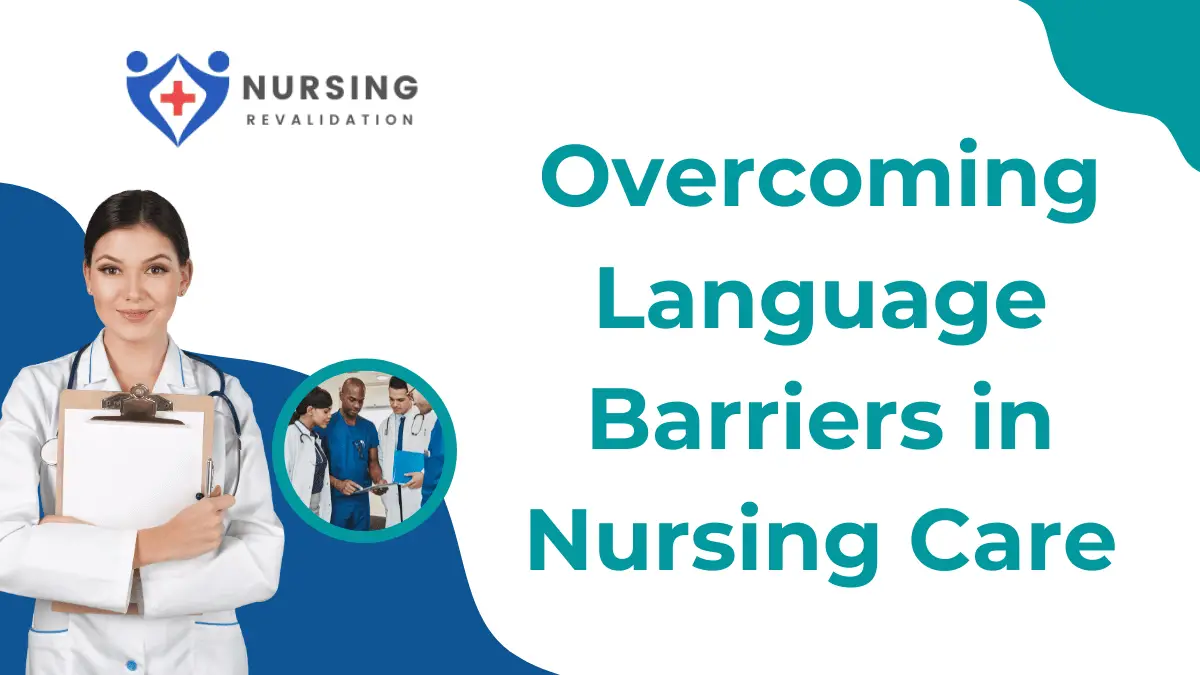In the healthcare sector, effective communication is paramount for ensuring quality care and patient safety. However, language barriers can significantly hinder communication between healthcare providers and patients, leading to misunderstandings, errors, and compromised outcomes. Nurses, as frontline caregivers, often encounter patients with limited English proficiency or different native languages. Addressing these language barriers is essential to deliver patient-centered care and promote positive health outcomes. This article delves into the strategies and best practices for overcoming language barriers in nursing care, empowering nurses to provide compassionate and effective care to diverse patient populations.
Understanding Language Barriers in Nursing Care
Language barriers occur when there is a lack of mutual understanding between individuals who speak different languages. In healthcare settings, these barriers can arise due to differences in language proficiency, cultural nuances, and communication styles. For nurses, overcoming language barriers is crucial for accurately assessing patients’ needs, providing clear instructions, and building trust with patients and their families.
Table: Benefits of Effective Communication in Nursing Care
| Benefits | Description |
|---|---|
| Improved Patient Outcomes | Enhanced understanding, adherence to treatment plans, and satisfaction with care |
| Enhanced Patient Safety | Reduced risk of medical errors, adverse events, and misunderstandings during care delivery |
| Increased Trust and Satisfaction | Patients feel valued and respected, leading to greater trust and satisfaction with the healthcare experience |
| Cultural Competence | Fosters inclusivity, equity, and cultural sensitivity among healthcare providers |
Challenges Associated with Language Barriers
- Misinterpretation of Symptoms: Miscommunication can lead to misinterpretation of symptoms, delaying diagnosis and treatment.
- Informed Consent: Language barriers may impede the informed consent process, affecting patients’ ability to make well-informed decisions about their care.
- Medication Administration: Communicating medication instructions effectively is essential to prevent medication errors and adverse reactions.
- Emotional Support: Patients may feel isolated or anxious if they cannot communicate effectively with their healthcare providers, impacting their emotional well-being.
Strategies for Addressing Language Barriers in Nursing Care
- Utilize Professional Interpreters: Healthcare facilities should provide access to professional interpreters who are trained to facilitate communication between patients and healthcare providers. Professional interpreters ensure accuracy, confidentiality, and cultural competence in communication.
- Use Language Assistance Services: In addition to interpreters, healthcare organizations can utilize language assistance services such as telephone interpretation and video remote interpretation (VRI). These services offer timely access to interpreters in various languages, regardless of geographical location.
- Implement Multilingual Resources: Hospitals and clinics can develop and distribute multilingual resources, including pamphlets, signage, and educational materials, to enhance communication with non-English speaking patients. These resources should be culturally sensitive and easy to understand.
- Train Staff in Cultural Competence: Cultural competence training equips healthcare providers with the knowledge and skills to navigate cross-cultural interactions effectively. Training programs should address cultural sensitivity, communication strategies, and the impact of language barriers on patient care.
- Utilize Technology: Advancements in technology have made communication more accessible and efficient. Nurses can leverage translation apps, language interpretation software, and communication devices to bridge language gaps and facilitate real-time communication with patients.
Benefits of Effective Communication
- Improved Patient Outcomes: Effective communication enhances patient understanding, adherence to treatment plans, and overall satisfaction with care.
- Enhanced Patient Safety: Clear communication reduces the risk of medical errors, adverse events, and misunderstandings during care delivery.
- Increased Trust and Satisfaction: Patients feel valued and respected when their healthcare providers make efforts to communicate effectively, leading to greater trust and satisfaction with the healthcare experience.
- Cultural Competence: Addressing language barriers fosters cultural competence among healthcare providers, promoting inclusivity and equity in healthcare delivery.
Conclusion
Language barriers pose significant challenges in nursing care, impacting patient safety, satisfaction, and outcomes. By implementing strategies such as utilizing professional interpreters, providing language assistance services, and promoting cultural competence, nurses can overcome these barriers and deliver high-quality, patient-centered care to diverse populations. Effective communication not only improves clinical outcomes but also strengthens the nurse-patient relationship, laying the foundation for positive healthcare experiences. As advocates for their patients, nurses play a pivotal role in bridging language gaps and ensuring equitable access to healthcare for all individuals, regardless of language or cultural background.

